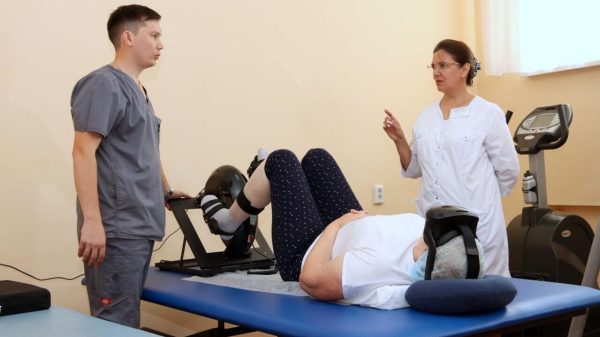
MOSCOW, June 6Geneticists from the National Research University BelSU proposed to identify among healthy people groups at risk of developing gastric and duodenal ulcers by checking several DNA sections. According to the authors of the study, the options they proposed for analyzing gene combinations make it possible to accurately identify hereditary predisposition to the disease and prevent its development. This was reported by the press service of the university.
As scientists from the Belgorod State National Research University (NRU BelSU) said, peptic ulcer of the stomach and duodenum is a disease whose development is often associated with the bacterium Helicobacter pylori. Once in the gastrointestinal tract, Helicobacter causes inflammation of the mucous membrane, which can lead to the development of ulcerative processes. The disease occurs in 5–10% of the adult population of the planet.
The symptoms of the disease cause significant discomfort to patients: loss of appetite, heartburn, pain. And possible complications, encountered by 10-20% of patients, can pose a threat to life.
One of the complications is “perforation” — deep tissue damage up to the formation of through perforation, when the contents of the stomach or intestines begin to leak into the abdominal cavity. Bleeding occurs six times more often than perforations, and bleeding is the cause of death in 40% of cases. In addition, a chronic ulcer can lead to the development of a malignant tumor.
Serious complications of peptic ulcer disease can only be eliminated surgically. Recovery after such operations depends on many factors, but on average takes at least three months. The peak incidence occurs during the prime of working age — 30-45 years. This makes it increasingly important to expand the arsenal of methods for early prediction of the risk of developing peptic ulcer disease.
According to the head of the Department of Medical and Biological Disciplines of the Medical Institute of the National Research University «BelSU», Professor Mikhail Churnosov, the disease usually develops from a combination of three factors: bacterial infection, unhealthy lifestyle and hereditary predisposition. Moreover, the contribution of heredity to the development of the disease ranges from 5.5 to 50%, so taking into account individual genetic characteristics is very important for determining the likelihood of developing the disease and effectively identifying risk groups among healthy people.
A team of BelSU scientists proposed options for identifying a hereditary predisposition to the development of peptic ulcer disease based on a molecular genetic study of several sections of DNA.
“
"The proposed methods of DNA analysis have no foreign analogues. Domestic research in the field of genetic risk factors for the development of peptic ulcer disease is rare,” noted Churnosov.
The professor said that the approaches that exist today in predicting the risk of developing peptic ulcer disease, as a rule, do not take into account the genetic characteristics of patients, which prevents the improvement of the quality of forecasting.
The first of the options for predicting the disease proposed by BelSU geneticists, based on identifying various alleles (forms of the same gene) located at polymorphic loci (identical sections of DNA) make it possible to identify the likelihood of developing the disease in patients of both sexes.
According to Churnosov, the presence of a combination of genotypes of the rs2294008 PSCA CC and rs6136 SELP AA loci warns of a high probability that the patient will encounter peptic ulcer disease in the future.
The second version of DNA analysis involves establishing the genotypes of the polymorphic loci rs2294008 PSCA CC and rs2519093 ABO CC. It, like the first one, makes it possible to identify with a high probability the risk of developing the disease in both men and women.
Study of the polymothic regions rs2294008 PSCA and rs649129 ABO/RF00019 allows us to identify hereditary predisposition to the development of gastric ulcer and duodenum only in women.
“Previously, data on interlocus interactions and combinations of the listed genotypes were not considered as a basis for predicting the likelihood of developing gastric and duodenal ulcers,” added Churnosov.
At the university implementing the «Scientific Belgorod» project «with the support of the Ministry of Education and Science of the Russian Federation, reported that more than 700 patients of the gastroenterology department of the Belgorod Regional Clinical Hospital of St. Joasaph took part in the study.






















































Свежие комментарии